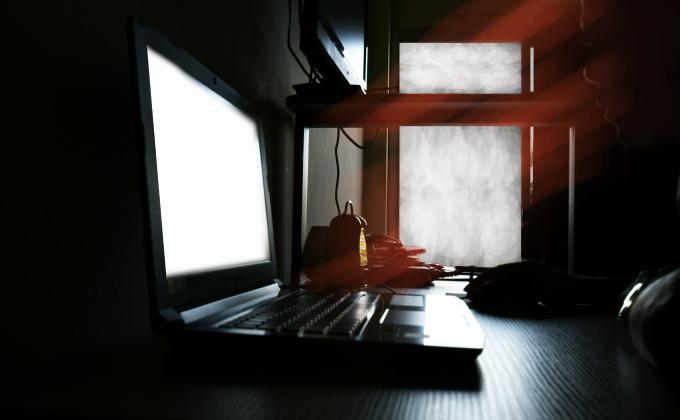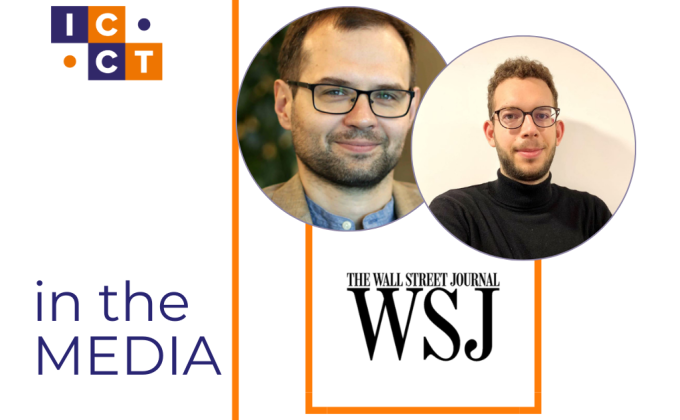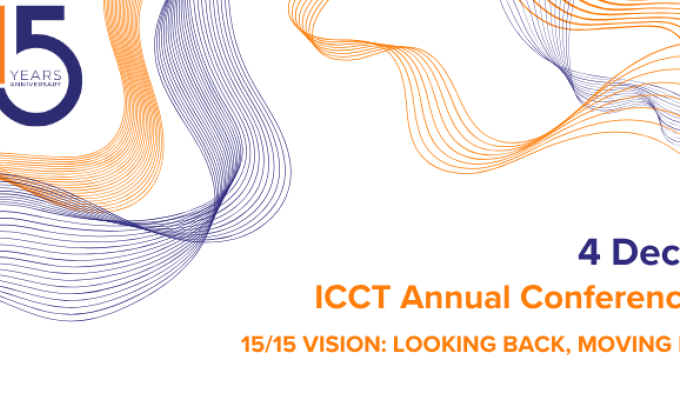This analysis will discuss the case of a Russian far-right movement named the Male State, and its transition from being one of the most notorious misogynist movements in Russia to one of the main online supporters and promoters of the war in Ukraine.
When the war in Ukraine began, it became a serious point of contention for Russian society, with some people enthusiastically supporting it and believing that Ukraine is being liberated from Nazis, while others strongly condemning it and advocating for immediate peace. In contrast, for various far-right groups, the war in Ukraine became a uniting point. While they may have different attitudes towards the government or its actions on the battlefield, they appear to be unanimous in their belief of the necessity of the invasion.
Some of these groups are relatively well-known to the media and researchers. The Wagner Group, Rusich, and the Russian Imperial Movement are actively involved in the fighting and recruitment on social media. However, much less is known about the groups that remain uninvolved in the war militarily, but promote support for the war online.
One of these groups (or rather – a loose movement), entitled the Male State (now – the Male Legion), is a particularly interesting case study. It represents an example of the Russian manosphere, with the original foundation for its beliefs being misogyny and the desire to rebuild Russian society on patriarchal grounds. After gaining notoriety for its attacks and its harassment of women, the group was designated as extremist and had to take additional security measures to protect its online channels from Russian security services (e.g. constant changing of names, pre-approval of new Telegram channel members, etc.). These actions are rather typical for any extremist group or movement. Where the Male State differs is that since the beginning of the war in Ukraine, it seems to have almost completely refocused its attention from women to promoting the war, and from criticising the Russian government to actively supporting it. This case study serves as an interesting example of not only the connection between misogyny and support for violence, but also of how extremists rebrand and change their focus for the sake of survival.
Emergence and Ideological Foundation of the Male State
The Male State was established in Russia in 2016. Its founder, Vladislav Pozdnyakov, is a blogger and fitness trainer who initially wanted to create a platform dedicated to jokes and discussions about relationships, mainly with the purpose of earning money as this content would attract a lot of attention. Gradually, however, the group has developed into something else: a place where toxic masculinity and hatred towards women were not only normalised, but developed into a semi-political ideology called the “national patriarchy”.
This ideology was explained in Pozdnyakov’s online manifesto, listing his ideas about women and the organisation of Russian society and politics. The manifesto has been deleted, but based on some remaining quotes, one can gain an understanding of the movement’s ideology. The movement is based on nationalism, rejection of multiculturalism, and racism. It expresses ideas of white supremacy and claims that only white people, especially Slavs, have the right to live in Russia. The movement is particularly against the idea of Russian women having relationships with non-white men as this, it claims, “spoils the genetic purity” of the nation. It is also openly anti-LGBTQ+ and anti-feminist. Both the LBGTQ+ community and feminists are considered a European “disease”, poisoning Russia and preventing the country from building a “proper” society based on traditional values. The movement has clear beliefs about women’s duties and obligations. Women are supposed to raise children and take care of the house, but also support their husbands. They should be dressed modestly, should not drink or engage in sexual relationships before marriage, obey and worship their husbands, and should “know [their] place”. Furthermore, Pozdnyakov even promoted changing laws to remove women from all aspects of political life and to create a state policy supportive of traditional values.
While the movement was initially based on a commercial idea, its ideas rapidly spread and gained wider support. The movement created official symbols (a black eagle with letters МГ), regional branches across Russia where people would meet offline and socialise, as well as organise public campaigns. Pozdnyakov also created several Telegram accounts such as The Male State, Butylka (the bottle), Nationalism and Patriarchy, and his personal blog, all dedicated to the same topic of “corrupt Russian women”. The channels became popular, with The Male State channel reaching sixty thousand subscribers and Pozdnyakov’s personal channel even reaching 160,000 subscribers in July 2020.
Journalist investigations into the Male State showed that membership (i.e., subscription to the channels and participation in the movement’s online and offline activities) was quite diverse, ranging from young men who support Pozdnyakov’s ideas and participate in public demonstrations, to people who were drawn in by curiosity and the provocative manner of the group. There are also female members who appear to be eager advocates for the ideology. In an interview with one of Pozdnyakov’s subscribers, it becomes evident that these women distinguish themselves from other women, insisting that the ‘others’ are misbehaved and shameful, and must be disciplined for the sake of the nation’s future. They also share Pozdnyakov’s homophobia and racism, claiming that “having a relationship with a non-white man is absolutely unacceptable”. Their reasoning is that interracial relations undermine Russian culture (as it will be blended with “alien” cultures) but will also eventually erase white (Slavic) people as a group. This rhetoric bears similarity to the Great Replacement Theory and while this term may not be familiar to Russians, the key ideas of this conspiracy do seem to circulate not only among the radicals, but also among the Russian general public.
Distinct Characteristics of the Group
Hateful misogynist groups are not rare on the Internet. However, the Male State has some distinct features. Though the group is often compared to incels, this is not appropriate. Unlike incels, members of the Male State do not necessarily struggle with finding romantic connections. Rather, the group’s ideology is a reflection of a conflict between two opposite phenomena happening in Russia – the rise of feminist ideas, and the attempts of the government and conservative forces to prevent these ideas from spreading and influencing traditional gender norms. Some Russian men feel threatened by the growing emancipation of women and may, like in the case of the Male State, attempt to aggressively resist these changes. This resistance towards feminism and the emancipation of women is linked to the nationalist idea of the Russian Nation, in which women are held responsible for the country’s survival. Moreover, the group publicly distanced itself from incels, considering them “pathetic”. A large part of Pozdnyakov’s rhetoric revolves around becoming an “alpha male” and rejects being a “baborab” (slave of women). Another noticeable difference is that unlike incels, which represent a loose online community that does not have any official structure or leadership, the Male State is much more organised. While it is a movement rather than an organisation, it has some organisational elements, such as local branches and leadership. The leadership is crucial to the movement’s existence, as Pozdnyakov’s persona appears to play an important role in attracting supporters. He does everything to attract media attention, and has given interviews to various media during the period of movement’s existence as a legal online/offline “activist” community.
The Male State’s harassment campaigns
While the group started as a commercial project, its ambitions quickly went beyond just controlling women, and aimed to rebuild Russia on the basis of far-right ideas. These ambitions were put into practice by Pozdnyakov. He tried to collaborate with the Liberal Democratic Party of Russia (LDPR, known for its far-right ideas and its eccentric leader at the time Vladimir Zhirinovsky) in the Russian Parliament. Pozdnyakov encouraged LDPR to take on his ideas, however, he did not succeed. The Male State gained notoriety in 2018 after the Football World Cup in Russia. Pozdnyakov and his allies launched a campaign against women who were spotted going out or were suspected of having sexual relationships with (especially non-white) foreigners. Photos and videos were posted on the Male State’s Telegram channel, subsequently leading to online and offline harassment of these women by members of the group. Later, the group expanded its reach by sending threats as well as harassing women whom they considered not “proper”: feminists, women in revealing clothing, or women in relationships with men that the Male State did not approve of.
Pozdnyakov was charged with inciting hatred against women and received a two-year sentence, but this punishment was not severe enough to make him stop. He continued inciting hatred and violence against anyone he considered to be violating “traditional values”. In 2021, he initiated a campaign against an LGBTQ+ family featured in an ad for the popular Russian food chain Vkusville. The family was forced to emigrate to Spain, and Vkusville was made to apologise to the Russian people for featuring an image in violation of “traditional Russian values”.
In the same year, another campaign followed. This time, it was against two Asian restaurant chains, YebiDoyebi and Tanuki, for featuring black models in their advertisements. Pozdnyakov encouraged his supporters to make fake delivery orders, resulting in great losses for the companies. It forced YebiDoyebi to apologise and remove the ad, but Tanuki, as well as the popular brand of fizzy drinks Vyatsky Kvas, chose to retaliate. They announced on social media that they would give a proportionate response to anyone trying to “propagate faulty values of race and gender supremacy”. This announcement was followed by the company’s online campaign, ridiculing Male State’s beliefs and behaviour and publicly called upon the authorities to designate it as an extremist movement. This brought the company a lot of public attention and support. Tanuki, in return, also proclaimed that it would not be intimidated by the Male State’s threats and took measures to ensure that the group was no longer able to make fake orders. This was an impetus for Russian law enforcement to start looking into the Male State more closely, eventually resulting in the extremist designation of the movement in October 2021, meaning that its members could be legally prosecuted for their harassment campaigns.
The War in Ukraine, Rebranding, and Survival
After the designation in 2021, the Male State’s Telegram channels were blocked by the authorities and Pozdnyakov fled to Georgia and then to Europe (supposedly Serbia or Montenegro). However, it did not put an end to the group’s activities. While the designation silenced Pozdnyakov and prevented any new harassment campaigns, the group continued to exist online under a different name: The Male Legion. The group’s hateful rhetoric persisted, but was less active for some time. This was until the war in Ukraine started, which seems to have given the movement a second life. Since the Russian invasion, the focus of the group shifted significantly from misogynist posts, to posts about the war in Ukraine. There is even a special channel called Shvabra (mop), which covers news about the war. Generally, the group’s content is extremely violent and racist, often using Nazi rhetoric (e.g. “final solution of the Ukrainian question”). It is also interesting that in its early years, the group was openly anti-government for not being “nationalist enough”, whereas now, they appear to support it and consider the war the right decision.
While unlike Rusich or other far-right groups, the Male Legion does not aim to recruit anyone to fight in Ukraine, it nevertheless serves as a powerful channel for the further spread and crystallisation of extremist ideas. Not only does it use derogatory language aimed at dehumanising Ukrainians, but it also shares extremely graphic content that may further increase subscribers’ acceptance of violence. In addition, while it became much less vocal about Russian women, it is still using misogynist rhetoric in relation to Ukrainian women, often sharing war rape fantasies which can contribute to the normalisation of these actions in the eyes of subscribers. Finally, it also appears to share news that often comes from unknown “intelligence sources” (it is believed that Pozdnyakov has or had connections with Russian security services), which may serve as a source of disinformation. This ideological “rebranding” appeared to work well for the movement as it was able to restore its support base, gain new followers and also successfully hide from blockages as since its creation in the end of 2021, its activity has not been disrupted. The group, therefore, does not only represent a dangerous (yet relatively unknown) case of a movement actively promoting the war in Ukraine, but also an example of extremist groups’ ability to adapt and change their ideologies for the sake of survival.
This article represents the views of the author(s) solely. ICCT is an independent foundation, and takes no institutional positions on matters of policy unless clearly stated otherwise.
Photocredit: Savvapanf Photo/Shutterstock







